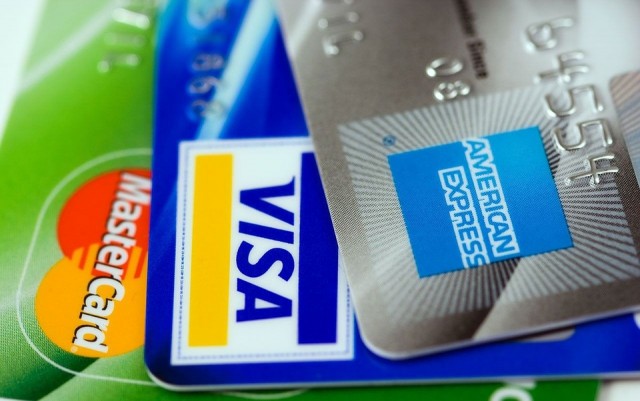If you’re launching a business, add one more thing to your endless to-do list: Keeping tabs on your business credit.
“There are so many options for businesses to get financing,” says Levi King, founder and CEO of Creditera, a company that helps business owners check their credit and understand their financing options. “But if you’re starting with bad data, either you won’t qualify or you’ll pay a lot more than you would with clean data.”
Unfortunately, monitoring your business credit isn’t always as straightforward as monitoring your personal credit – so we asked King for guidance.
Where your business credit comes from
When you file your paperwork with the state in which you wish to do business, that public record plants the seed. The business credit bureaus now “have your pulse,” King says.
“They know you’re alive as a business,” he says. “But there’s no report or score yet.”
Once your business starts taking out loans and working with suppliers, those entities will report your payment record to the bureaus (which do their best to match those accounts with your original public record), and a credit report and score will begin to form.
“Once you have a couple accounts reporting, three for sure, you’ll have a business credit score,” King says.
Some business credit bureaus can create a score for you without a credit history by using other factors (such as revenue, industry and time in business). However, the popular Paydex business credit score from the bureau Dun & Bradstreet requires payment history to calculate a score.
Types of business reports and scores
As with personal credit, there are several business credit bureaus curating credit profiles and generating scores. Some of the most important are Dun & Bradstreet, Experian, Equifax and FICO, King says. According to King, the industry clout and score ranges can be summarized as follows:
| Dun & Bradstreet | Experian | Equifax | FICO | |
| Most popular score name | Paydex | Intelliscore Plus | Small Business Credit Risk Score | FICO Small Business Scoring Service (SBSS)* |
| Range | 0-100 | 0-100 | 101-816 | 0-300 |
| Score considered “good” | Above 80 | Above 70 | Above 600 | Above 170 |
| Industry notes | Commonly used for business-to-business credit arrangements and non-credit goods and services | Commonly used by lenders. Experian has upper hand with alternative lenders, and both split market with traditional lenders. | Used by Small Business Administration to pre-screen loans it insures, and in other bank/credit union scenarios | |
| *Combines personal and business credit, and financial data | ||||
Different aspects will be weighted differently to calculate a score, depending on the algorithm used. But you can expect the following to play a role in your business’s score:
- Payment history: Paying loans, business credit cards and suppliers on time helps your score.
- Time in business: More years in business equates to lower risk.
- Industry: Certain industries are considered riskier than others, and that factors into your score.
- Revenues: For personal credit scores, income isn’t a factor – but how much your business earns plays a role in business scores.
- Public records: Tax liens, bankruptcies, charge-offs and judgements are all considered derogatory and will lower your business credit score.
How to check your business credit
You can go to the business credit pages of Dun & Bradstreet, Experian and Equifax to request your business credit report and score. Prices range from free to several hundred dollars, depending on the product and whether you want a subscription.
Creditera offers a free subscription that gives you access to summary reports from Dun & Bradstreet and Experian, a personal TransUnion report and the ability to sign up for alerts when something on your business credit reports changes. Its premium paid service also gives you your FICO SBSS score – and it’s worth noting that this is currently the only place you can get your SBSS score online (at this time, FICO will not sell it directly to you).
How to fix mistakes
The way business credit reports are assembled make them more “mistake-prone” than personal reports King says. People have unique indicators like Social Security numbers and birth dates. Although the system isn’t perfect, if both of those are correct, it’s likely that the credit information tied to those pieces of information is accurate.
But only a business name and partial address are required to assign information to a business credit report. That can spawn problems, including:
- The reputation of other local, similarly-named businesses can tarnish yours: Let’s say you operate a restaurant called Luigi’s Pizza, and your business’s finances are squeaky clean.
“There might have been three other guys who owned a business called Luigi’s Pizza in your ZIP code that went out of business and had tax liens,” King says. “And those might end upon your report.”
- Your credit rating is based on out-of-date paperwork: “When you filed your secretary-of-state paperwork, you may have used your home address because you didn’t have an office location yet,” King says. “You might have listed your CPA as the registered agent. So right away [the bureaus] think your CPA is the owner and your home address is your business address.”
The address issue can be a problem, as home-based businesses are often rated riskier by credit-scoring algorithms, King says.
Even mistakes that may not seem to matter can have major business-credit repercussions. The wrong industry listed on your credit report, for example, can make your business seem like a higher risk and thwart your ability to secure funding or services.
“You may be in a high-risk industry according to the bureau, but it’s actually not the case,” King says.
Fixing these errors highlights another major difference between personal and business credit. Consumers have the Fair Credit Reporting Act on their side, which solidifies a protocol for disputing errors– and gives bureaus a 30-day deadline for removing or correcting false information. There’s no equivalent legislation for business credit.
“You can dispute things,” King says. “But it takes a little longer because there’s no mandated 30-day time frame.”
To dispute an error, you’ll need to contact the bureaus directly via the following links:
You’ll also generally need to provide proof of the error. If the industry is listed incorrectly, for example, you might provide your tax returns to show the industry code under which your accountant filed your taxes, King says.
Keeping your business credit clean
To minimize errors going forward, sign up for alerts, either via the bureaus or a third-party service, King suggests. That way, when derogatory information hits your report, you can react immediately.
Keeping your business credit accurate is vital to borrowing money at the lowest cost possible, securing business services and getting business insurance. Even other businesses you want to work with might check your credit. For example, if you’re a subcontractor, expect general contractors to check up on you.
“They want to know if you can do your part of the job,” King says. “There are a lot of business-to-business checks that basically boil down to ‘Do I trust you to deliver as a business?’”
Looking for a business credit card to help build your business credit? Check out popular options here.
Find a Home-Based Business to Start-Up >>> Hundreds of Business Listings.

















































